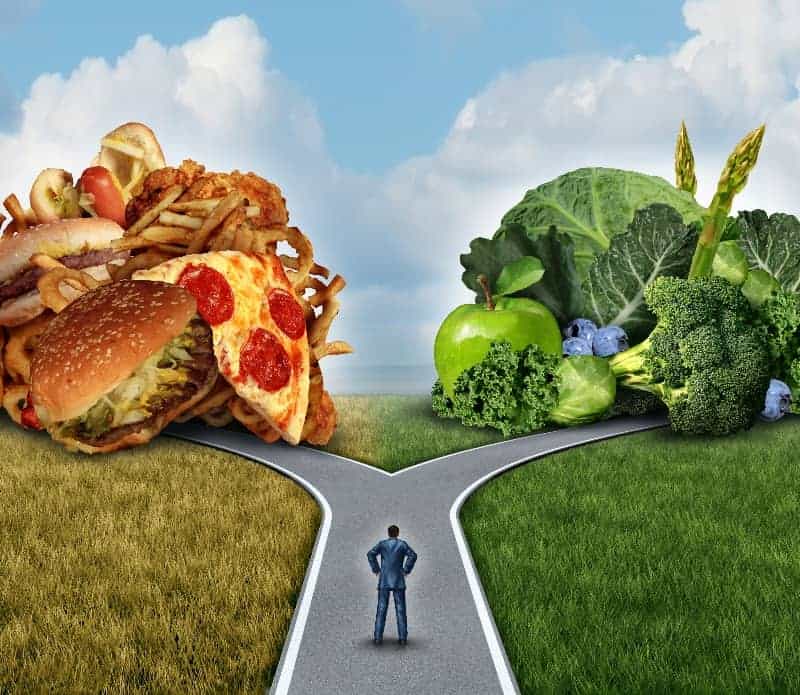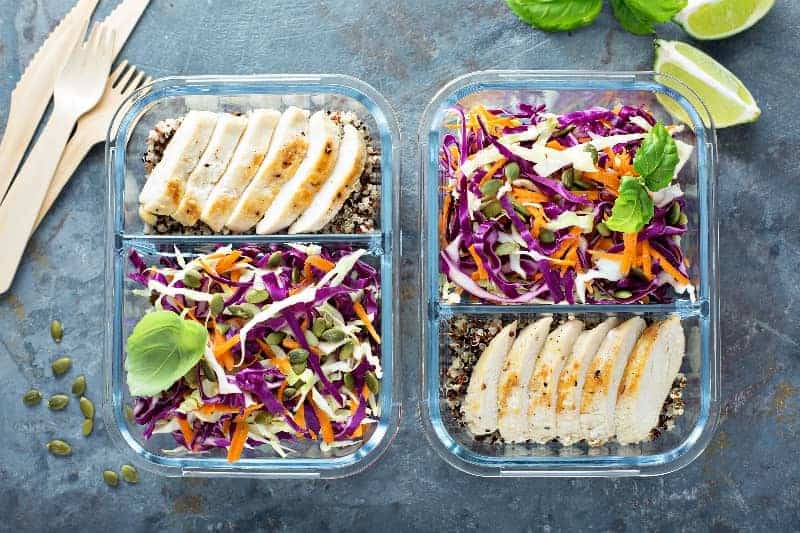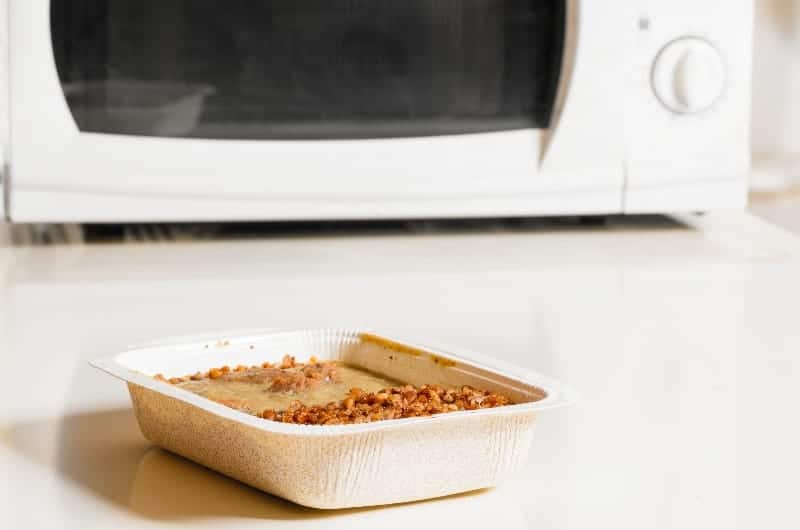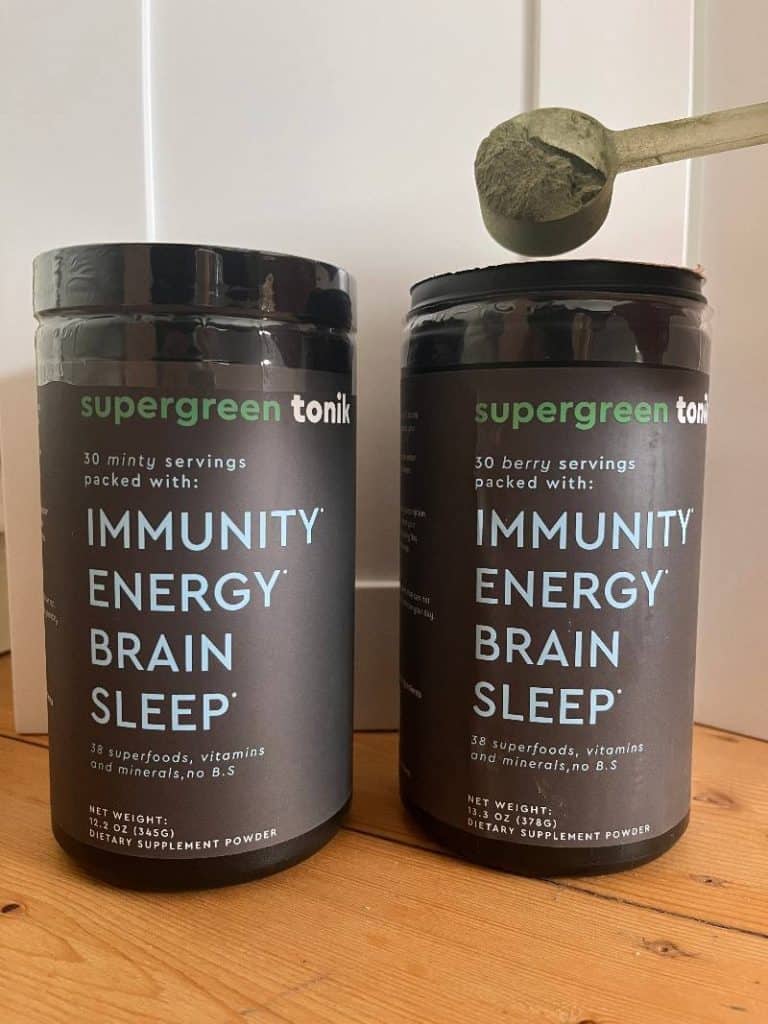Disclosure: This page may contain affiliate links, meaning we receive a commission if you decide to make a purchase through our links, but this is at no additional cost to you. Please read our disclosure and privacy statement for more info.
We’ve all been there. You’re working long hours as a shift worker, your feet are hurting, and your back is aching. When you get home, you’re not thinking about nutritious food. You’ll likely pop something in the microwave and crash into bed. The problem is, you are self-sabotaging. Your diet and nutrition levels give you the energy to keep going despite working a schedule most others cannot even imagine is possible.
In order to achieve adequate nutrition, shift workers must acknowledge it will take organization and planning. Having healthy options available limits the temptation to rely on something quick and non-sustainable. Keep in mind your portion size, meal timing and avoid eating excessively close to bedtime.
In this article, I’ll give you the ins and outs of how you can optimize your diet and nutrition for life as a shift worker. Following these tips will provide you with the energy you need to perform inside and outside the job.
The Importance Of Nutrition For Shift Workers
I’m sure you’ve heard the saying, “You are what you eat.” This statement couldn’t be any more true. What we put into our bodies is what we get out.
That’s why having a nutritional and healthy diet is crucial to our role as shift workers as we are already working against our body clocks making the job a lot harder.
Studies have found that eating a nutritional diet can improve your health, lower blood pressure, avoid bad cholesterol, and triglycerides without gaining or losing weight.
On the flip side, poor nutrition can lead to depression, osteoporosis, obesity, some cancers and even tooth decay. So if you want to keep your pearly whites, you might consider eating some vegetables!
On top of all that, microwave meals (we are often drawn to for convenience), cheap snacks and energy drinks all can contain excessive amounts of salt. This is bad because consuming too much sodium has been found to increase your risk for heart disease and stroke.
All these statistics may sound scary but don’t worry, I’ve been in your shoes before. Changing our diets and nutrition can be fun and straightforward. So what do we do?
Think about it like this: reduction and replacement.
You reduce the number of unhealthy and low-nutritional foods you consume and replace them with the opposite. Whether you are just replacing or reducing, this will make a huge difference.
One thing that helped us a lot when working overnights was buying healthy options ahead of time. Having the better option ready and available made me less likely to give in to the temptation of the break room vending machines.
But, what are some specific things we can do before, during, and after the shift?

Before The Shift
Before we even head to work, we need to be thinking about what we’re eating.
Consuming a healthy and nutritional first meal (we’ll call it breakfast) will start us off right and set the tone for the day. Eating a healthy breakfast has been shown to help control weight and improve performance on the job.
So, what do we eat?
I personally start with SuperGreen TONIK.
It’s a powdered green juice formula that gives me the energy kick I need to start my day off right. I’ve tried a bunch of these green juices and have finally found one I enjoy and tastes reasonable. I buy it in bulk and it comes down to about $47 per canister which gets you about a month’s worth of product. Just over one dollar a day.
See our full review here and find your 10% discount code.
Fruits and Vegetables
Apples, grapes, bananas, spinach, kale, and tomatoes; your options are endless and full of color. These are jammed-packed full of fiber, vitamins, minerals and healthy sugars that will keep you energized throughout the start of your day.
Whole grains
Whole-grain bread, bagels, cereals, etc. Whole grains are complex carbohydrates, meaning they have more nutrients and digest slower. Slow digestion means you’ll have more energy for longer!
Lean proteins
Eggs, lean meats, nuts, legumes, and even Greek yogurt are all great lean protein sources. Lean proteins keep us full for longer and are healthier than fatty alternatives.

I find eating the right amount of protein a day makes me feel full, stopping endless grazing and fatigue that can rear its ugly head when we ignore our diets.
Low-fat dairy
Some options are milk, low-fat yogurts, and a variety of cheeses. Low-fat dairy is another excellent source of protein. On top of that, they’re full of vitamins and minerals, keeping you healthy and happy!
Mixing and matching from any one of these sources will create a balanced and nutritious diet.
“Wait, I’m a shift-worker…”
That’s right! Don’t think I’ve forgotten. Oftentimes, we’re tired from the night before or in a rush to get to work. What are some quick, nutritious meals you can make in a flash?
Hard-boiled eggs and some fruit
This quick and filling breakfast will provide you with a good source of lean protein and carbs to start your “morning” off right. Boil the eggs the night before, throw some salt and pepper on them, grab a banana and head out the door!
Smoothies
The benefit of smoothies is a no-brainer. Being able to throw in fruits, vegetables, dairy, powders, etc., allows you to get a nutritious start to your day and you can sip on the drive to work. There are a few smoothie recipes in my favorite shift working book, “Too Tired To Cook” which you will definitely enjoy!
Whole-grain bagel with low-fat cream cheese
Pop the bagel in the toaster and then smear it with your favorite flavor of low-fat cream cheese. Added points if you top it with nuts or seeds or grab some fruit on your way out.
Overnight oats
Another great first meal you can prepare the day before! Put the oats in a jar with the milk of your choice. Top it with whatever you see fit, peanut butter, chia seeds, or fruit. The options are endless.
These options are ideal when considering your bowels and staying regular. We talk all about constipation and working shift work here and if you can avoid it, we advise you do!
Yogurt bowls
Just like smoothies, the benefits here are obvious. Take some low-fat Greek yogurt, top it with some berries and granola, and enjoy!
For more options, check out this post titled, 6 Quick and Healthy Night Shift Breakfast Meal Ideas.
Whether you have time to prepare a full English breakfast or find yourself rushing out the door, your first meal is crucial to your health and workday.
Start the day off right with something healthy and nutritious so that you can take that mindset into the shift.

During The Shift
On the job as an ER Nurse, I’m usually flat out, not really thinking about food.
Usually, we’re handling one crisis from the next or jumping between tasks.
However eating nutritious meals and snacks throughout the shift is crucial to maintaining energy levels, ensuring safety and stopping headaches from taking over.
You can’t expect to perform at your best if you’ve got no fuel in the tank. Or more specifically if you’re full of coffee, cigarettes and something fried.
According to nutritionist Dan Bernadot, eating every few hours is one of the best ways to maintain energy levels throughout the day. That being said, if we consume the wrong things, we might contribute to an overall feeling of fatigue and lethargy as we chat about here.
Complex carbohydrates are your body’s quickest way to fuel.
If you want something slower and longer-lasting, lean sources of protein are your best bet. Combining either of these with healthy fats will give us the energy we crave. So what are our options?
Whole-grain crackers
Combining whole-grain crackers with low-fat dairy and fruit is a great snack while you’re on the job. The carbs from the crackers, along with the slow-digesting healthy fats, will keep you energized
Healthy granola bars
Granola bars a great snack you can buy or make beforehand. Throw one in your work bag before your shift, so you have something healthy to eat. Make sure to check the ingredients and sugar content. You don’t want to end up buying a candy bar!
Fruits
Bananas, berries, apples, etc., are a great source of carbs and sugars to keep you energized. Try a handful of blueberries, nuts, and low-fat cheese for a great snack!
Now we know what makes a great snack and what to look for in foods. But, what are some of the things we can avoid during the shift?
- Not drinking enough water
- Consuming high-sugar drinks
- Too much caffeine
- Too many high-fat meals
- Not eating enough
Avoiding high-sugar drinks and too much caffeine will boost your energy levels. The crash from both sugar and caffeine can drain us during the middle of a shift. Replace one of your drinks with water and notice the benefits.
Related post: Night Shift and Caffeine. How To Use It Wisely
On top of that, eating high-fat meals and snacks can make us feel lethargic. Try replacing that microwave meal with a salad. Leafy greens are not only nutritious but a great source of fuel as well.
One of the primary keys is to make sure you’re eating adequately throughout the shift. It can be tricky with the hustle and bustle of work but stopping to eat something healthy and nutritious will up your performance.
More food-related posts you’ll probably enjoy:
- Healthy Meals for Shift Workers (with Recipes and Videos)
- 10 Easy Shift Work Meals with Recipes
- When Should I Eat on Day Shift? Your Stomachs Perfect Guide
I recently published a video about which foods to avoid at night to stop nausea and bloating. I think it will come in handy right about now.
After The Shift
It’s understandable to be tired after work.
When we get home, we’re not necessarily thinking about what’s healthy and nutritious. We just want to relax, watch some Netflix, and prepare for the weekend or the next day.
But, to prepare for those coming days and we need to be mindful of what we’re consuming at home.
What we put into our bodies after the shift is equally important to what we eat before and during. Stopping to get fast food on the way home will contribute to an overall feeling of lethargy and feeling gross.
Rethinking the Big Mac, what are some things we should consider after work?
Portion size
Overeating before bed can cause heartburn, bloating, indigestion and acid reflux. All of these things can prevent us from getting a good night’s sleep. Watch your portion size before bed to avoid these hassle.
For work, don’t take the biggest container you can find. Be smart about it. Is eating all that food really necessary? Chew more and slow down and you’ll find you probably don’t need that much.
Timing
Along with portion size, timing is crucial for dinner. If we don’t time our last dinner properly, we can have a very restless night.
Have your last meal three hours before you go to bed to ensure your body has enough time to digest.
However, if you’ve just arrived home after a night shift we do recommend having a small “breakfast” before hopping into bed, despite being close to bedtime. The idea here is to limit the chances of waking up unnecessarily in 3-4 hours’ time with hunger and stomach pains. This post What Should I Eat After Working Night Shift? will give you more context here.
The fancy term for meal timing is called Chronutition. This is a brilliant podcast for those who want to learn more.
Avoiding sugars and caffeine
Consuming too much sugar and caffeine late at night can interrupt our sleep. Stop drinking caffeine six hours before bed and avoid excess sugar at night.
I’m right there with you. At the end of the day, all of this sounds like a pain!

Managing portion size, limiting our favorite unhealthy foods, and cutting ourselves off can all be challenging. So what are some things we can do to make it easier on ourselves?
Two of the best things we can do are meal prep and plan ahead. It’s no wonder these things go hand in hand!
One thing I’ve learned from my early days working in a cafe is that preparation is vital. Roast off some carrots, potatoes, or vegetables of your choice ahead of time and cook up some quinoa. This way, you’ll have a healthy side you can pop into a microwave or skillet.
You can take this approach to proteins as well.
Pre-marinate some chicken breast in your favorite sauce. Or, break out your slow cooker and start a pot roast before heading off to work. Either way, you’ll have a healthy protein source waiting for you when you get home.
Just like meal-prepping, planning is something you do ahead of time.
Planning out your meals before your shift or even the work week will take a load off your shoulders. On top of that, knowing what ingredients you have or what you need to buy will reduce future headaches.
I know this can all sound daunting and intimidating. With the internet at your disposal and great resources online, this can all be a breeze.

But, if you must use/need the microwave…
I get it. The convenience of our microwaves can’t be matched.
I’d be lying if I said I didn’t have a few microwave meals in my freezer ready to go, just in case. We can use our microwaves better, though!
There are a few things to keep in mind when choosing a frozen meal. The number of calories, grams of fat, sodium levels, serving size and grams of protein should all be on your radar.
Aim for meals closer to 500 calories. Frozen dinners with more calories will feel more like a meal and less like a snack. Don’t forget to check the serving size, either. What may seem like a meal for one might be meant for two or three.
The fat levels are equally important. Choose something with 10-18 grams of total fat, ensuring a more balanced meal.
Look out for meals with 10-20 grams of protein. Protein adds to slower digestion, making you feel full for longer. On top of that, the more protein it has means fewer filler ingredients.
If it has more than 600 milligrams of sodium, it’s a no-go. As mentioned earlier, too much salt can contribute to various health complications we’re trying to avoid.
Another good thing we can do is eat our leftovers. If you’re anything like you Dan, you hate leftovers with a passion. Biting the bullet and eating the leftover whole-grain spaghetti from Tuesday will not only secure you a healthy meal but clear your fridge out as well!
Remember to go slow and take it easy on yourself because…
Sometimes Being Mindful Is All It Takes

Changing our lifestyles and habits can be both scary and challenging. The good news is it all starts with a thought!
Whatever brought you to this article doesn’t matter. The fact that you read through it and took an interest in it means you’ve started. Go ahead, pat yourself on the back!
When I first started changing my diet, it was difficult. I was impatient and expected a lot out of myself. What helped the most was being mindful and conscious of the decisions I was making.
Pay attention to what you’re eating and how it makes you feel—both mentally and physically.
If something doesn’t feel right or makes you feel bad, you’ll want to change it. If a particular food makes you feel good and energized, you’ll want more of it!
Be patient with yourself. You’re only human. Take the time to learn what you like and what works for you. Implement certain strategies, see how they work out, and go from there.
This podcast below is brilliant. It talks about the five pillars of health and how we can get more if it. Highly recommend.
Last Bit Of Nutrition Advice For Shift Workers
As shift workers were usually thinking about how our feet or backs hurt. We’re definitely not thinking about complex carbohydrates and lean sources of protein!
But, keeping these things in mind and implementing certain habits will ensure we have enough energy for days to come.
It doesn’t have to be rocket science! Making sure you have healthy options readily available will reduce the temptation of junk foods.
Waking up with the intention to eat healthy and nutritious is all it takes. Start the day off with a healthy meal to give you that energy boost you need.
While at work, food and breaks can be hard commodities to come by. That being said, it’s vital to our performance and well-being. Make sure you are eating healthy snacks (or even some vegan snacks) throughout the day and reduce sugary drinks.
After work, all we want is rest. But, having a healthy meal will give us a better morning. Planning your meals, watching your portion size, and not eating too close to bedtime will ensure a good night’s rest!
Some other things to keep in mind and help you better implement a healthy lifestyle are:
- It takes times to develop healthy habits
- Starting small is better than not starting at all
- Keep it as simple as you like
- Be mindful and have clear intentions
- Drink more water! We use the BEAST Tumbler for this job!

Summary: Honest Shift Work Nutrition Advice No One Will Give You
Whether you start by cutting out your mid-shift energy drink or start full-on meal prepping doesn’t matter. Being mindful of what you consume, having clear intentions and goals, and starting small will improve your energy levels and well-being!
Before you go I want to leave you with a breakfast recipe I am obsessed with at the moment,
Breakfast recipe Idea:
Healthy pancakes! I recently started making this breakfast and I can’t get enough of it. I found it on the Deliciously Ella App. Blended oats, almonds, chia seeds, banana, and Medjool dates, mixed together and plopped onto a hot pan with coconut oil. Once cooked through, put them on a plate and pour some hot mixed berries over them with a dollop of yogurt and some cut of walnuts. So yum!
You should continue reading this one. It’s all about the right way to weigh yourself – yes there is a right and wrong way!
Take care.

Disclosure: This page may contain affiliate links, meaning we receive a commission if you decide to make a purchase through our links, but this is at no additional cost to you. Please read our disclosure and privacy statement for more info.
Recent Posts
An examination of the night shift professions, that while sometimes underappreciated, are necessary for civilization, in its current form, to exist. A city can be thought of as a machine. Each...
Culminated from an exhaustive yet well-funded journey into the night, this article will prepare you for life outside of work while being a denizen of the dark. During days off, night shift...



